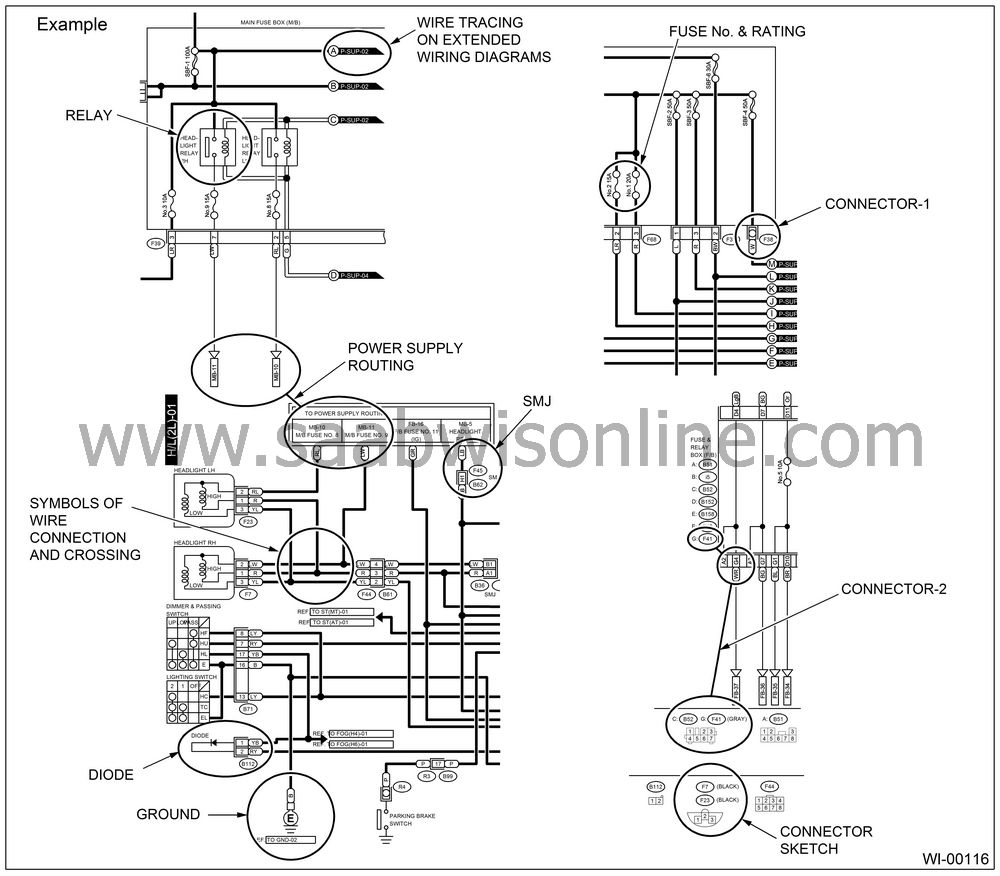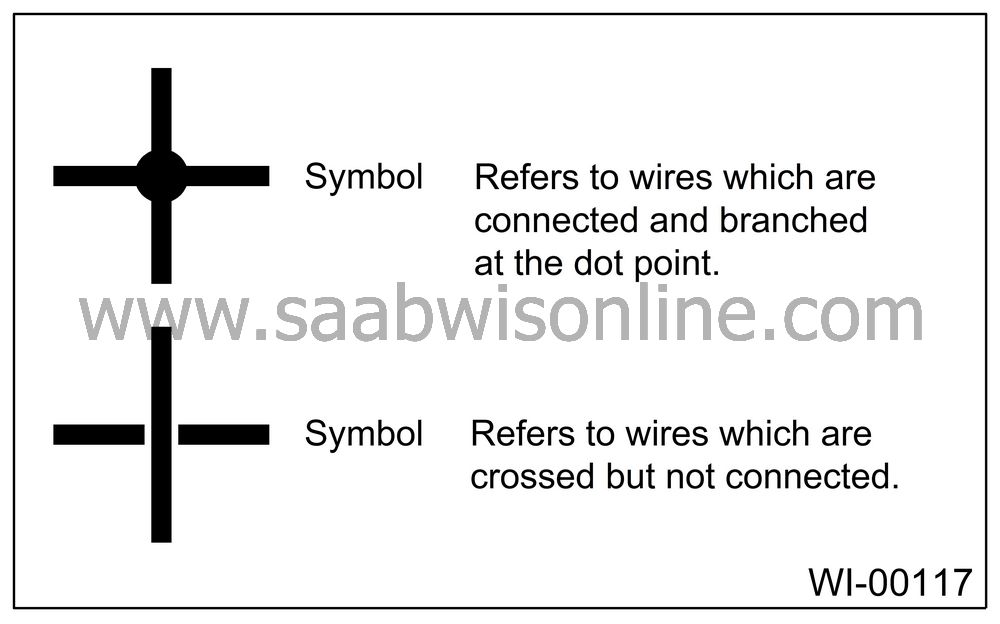SYMBOLS IN WIRING DIAGRAMS
|
|
SYMBOLS IN WIRING DIAGRAMS
|
A number of symbols are used in each wiring diagram to easily
identify parts or circuits.

A symbol used to indicate a relay.
The sketch of the connector indicates one-pole types.
Some wiring diagrams are indicated in foldouts for convenience.
Wiring destinations are indicated where necessary by corresponding
symbols. (When two pages are needed for clear indication)
The “FUSE No. & RATING” corresponds
with that used in fuse box (main fuse box, fuse and joint box).
|
•
|
Each connector
is indicated by a symbol.
|
|
•
|
Each terminal number is indicated in the corresponding
wiring diagram in an abbreviated form.
|
|
•
|
For example, terminal number “G4” refers
to No. 4 terminal of connector (G: F41) shown in the connector sketch.
|
|
•
|
Each connector
sketch clearly identifies the shape and color of a connector as
well as terminal locations. Non-colored connectors are indicated
in natural color.
|
|
•
|
When more than two types of connector number are indicated
in a connector sketch, it means that the same type connectors are
used.
|
Each grounding point can be located easily by referring to
the corresponding wiring harness.
A symbol is used to indicate a diode.
|
WIRE TRACING ON EXTENDED WIRING DIAGRAMS
|
For a wiring diagram extending over at least two pages, a
symbol (consisting of the same characters with arrows), facilitates
wire tracing from one page to the next.
A ←→ A, B ←→ B
|
SYMBOLS OF WIRE CONNECTION AND CROSSING
|

A symbol is used to indicate the power supply in each wiring
diagram.
“MB-5”, “MB-6”, etc.,
which are used as power- supply symbols throughout the text, correspond with
those shown in POWER SUPPLY ROUTING in the wiring diagram.
Accordingly, using the POWER SUPPLY ROUTING and wiring diagrams
permits service personnel to understand the entire electrical arrangement
of a system.
|
CLASSIFICATION BY SPECIFICATION
|
When the wiring diagrams differ according to vehicle specifications,
the specification difference is described by using abbreviations.




